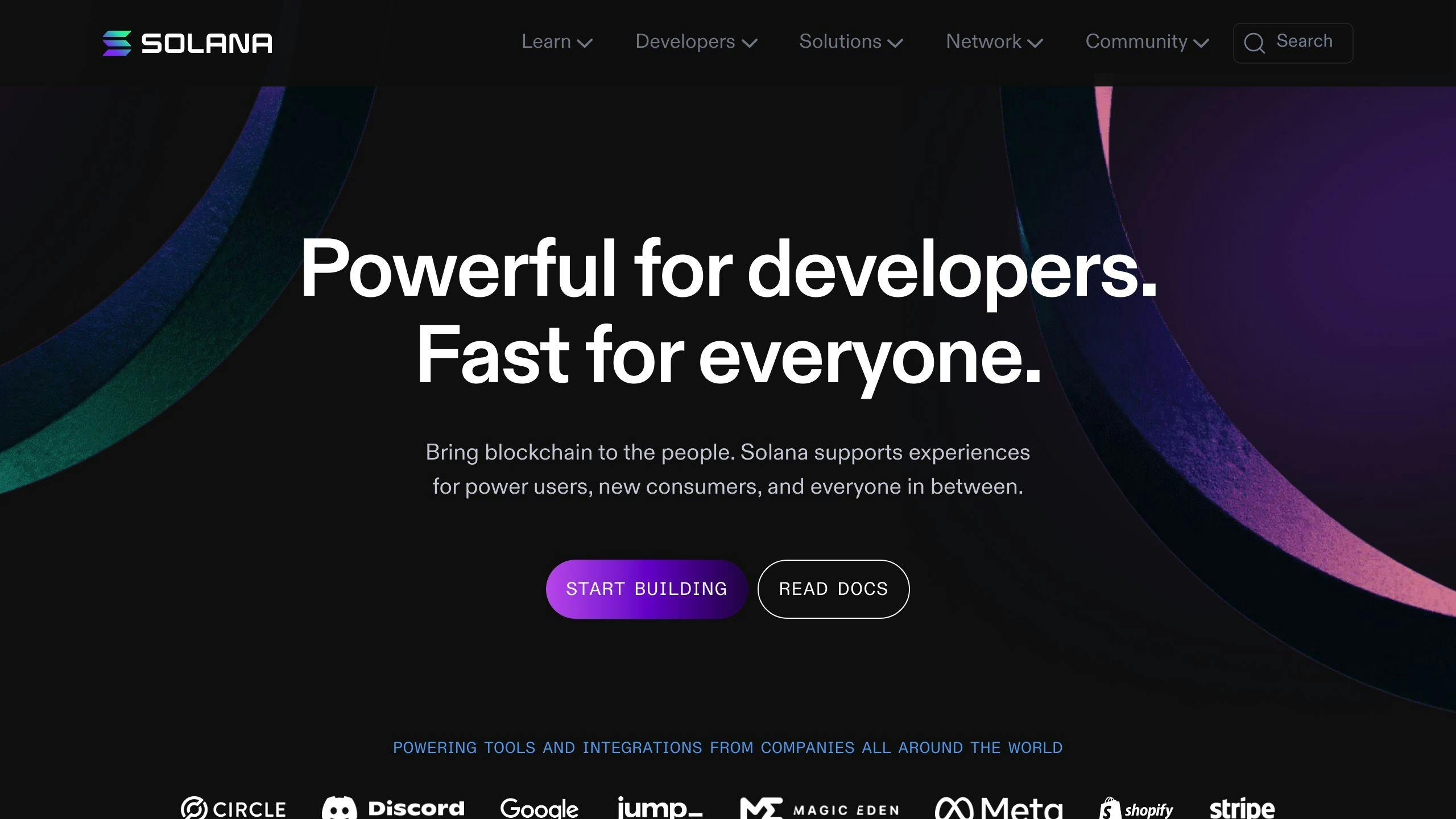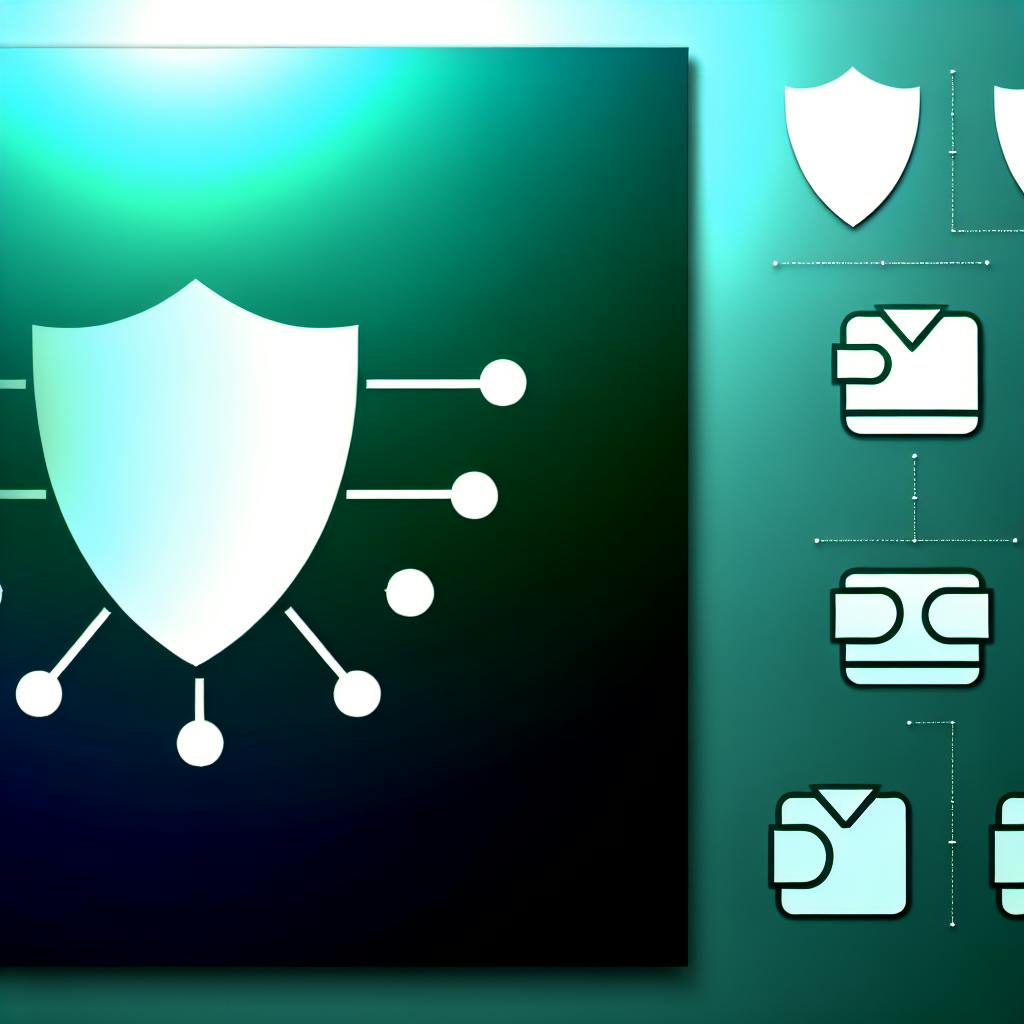Ensuring regulatory compliance and robust security is crucial for the long-term success of Solana projects. This guide covers:
- Understanding key regulations like Anti-Money Laundering (AML), Know Your Customer (KYC), data privacy, and securities laws
- Following secure development practices for Solana smart contracts and applications
- The importance of regular security audits to identify vulnerabilities and verify compliance
- Popular auditing tools and techniques for Solana projects
- Leading audit service providers and how to choose the right one
- Strategies for building a strong compliance framework and staying up-to-date with evolving regulations
- Challenges in balancing security, decentralization, and community collaboration
By prioritizing compliance and security, Solana developers can protect user assets, build trust, mitigate risks, enhance reputation, and contribute to shaping favorable regulatory frameworks.
Related video from YouTube
Quick Comparison: Solana Audit Providers

| Provider | Expertise | Methodology | Pricing | Turnaround Time | Reporting |
|---|---|---|---|---|---|
| Xamer | Solana, Ethereum, Binance Smart Chain | Automated tools, manual review, penetration testing | Competitive | 2-4 weeks | Detailed report, open communication |
| Halborn | Solana, Ethereum, Polkadot, Cosmos | Code review, threat modeling, simulation testing | Premium | 3-6 weeks | Comprehensive report, regular updates |
| Hacken | Solana, Ethereum, Tron, EOS | Automated scanning, manual review, gas optimization | Affordable | 1-3 weeks | Clear report, support available |
Regulations for Solana Projects
Key Regulations
Solana projects must follow certain rules set by governing bodies. Here are some key regulations:
-
Anti-Money Laundering (AML): Solana projects must have strong measures to stop money laundering activities. This includes verifying users' identities (KYC) and monitoring transactions.
-
Consumer Protection: Regulations aim to protect users from fraud and unfair practices. Solana projects should have clear policies and information to ensure transparency.
-
Data Privacy: With a focus on data privacy, Solana projects must follow rules like the GDPR and maintain high standards for data security and user consent.
-
Securities Laws: Depending on the project, Solana tokens or offerings may be classified as securities, meaning they must follow relevant securities laws and regulations.
Regulatory Authorities
Several bodies are monitoring and creating rules for blockchain and cryptocurrency, which impacts Solana projects:
| Regulatory Body | Role |
|---|---|
| Securities and Exchange Commission (SEC) | Regulates cryptocurrency projects that it considers securities offerings. Solana projects must carefully follow SEC rules. |
| Financial Crimes Enforcement Network (FinCEN) | Oversees anti-money laundering and counter-terrorism financing regulations, which Solana projects must comply with. |
| Commodity Futures Trading Commission (CFTC) | May regulate Solana-based derivative products. |
| International Bodies (e.g., FATF, BCBS) | Develop global standards for cryptocurrency regulation, which can impact Solana projects operating across multiple countries. |
As rules change, Solana projects must stay updated and adjust their compliance strategies to reduce risks and ensure long-term success.
Secure Solana Development
Building secure Solana smart contracts and applications requires following best practices and conducting regular testing and audits. This helps prevent vulnerabilities and protect against potential threats.
Coding Best Practices
Writing secure code is crucial. Here are some key practices:
- Code Reviews: Regularly review code to identify issues and ensure best practices are followed.
- Secure Frameworks: Use frameworks like Anchor, which provide built-in security features and guidelines.
- Access Control: Implement robust access controls to restrict unauthorized actions or data access.
- Input Validation: Validate all user inputs and external data to prevent injection attacks.
- Error Handling: Properly handle errors to prevent unintended behavior and vulnerabilities.
Vulnerability Testing
Continuous testing is essential to identify security issues:
- Automated Testing: Use tools like Solhint, Solium, and Solcheck to scan for common vulnerabilities.
- Penetration Testing: Simulate real-world attacks to find potential vulnerabilities.
- Fuzz Testing: Provide invalid or random inputs to identify edge cases and unexpected behavior.
Regular Security Audits
Regular audits by experienced firms or individuals are crucial for ensuring security and integrity:
| Benefit | Description |
|---|---|
| Identify Vulnerabilities | Uncover potential vulnerabilities missed during development and testing. |
| Verify Compliance | Ensure compliance with relevant security standards and regulations. |
| Mitigate Risks | Address vulnerabilities to prevent security breaches and mitigate risks. |
| Increase Confidence | Successful audits increase confidence in the application's security, promoting user trust and adoption. |
Implementing secure coding practices, conducting vulnerability testing, and performing regular security audits are essential steps in building robust and secure Solana applications. Prioritizing security throughout the development lifecycle helps protect user assets and data.
Auditing Solana Contracts
Audit Process Overview
1. Contract Submission
The audit starts when you send the Solana smart contract code to the auditing firm. Auditors review the code to understand its structure, complexity, and purpose.
2. Audit Testing
Auditors manually review the code to find issues and check if it aligns with the intended logic. They run unit tests to validate functionality and use automated tools to analyze patterns and improve robustness.
3. Independent Review
Another team of engineers, not involved earlier, independently reviews the audit report. This unbiased review allows for corrections and improvements.
4. Report Delivery
The final audit report is delivered to you, along with recommendations for updates and improvements, following an Agile methodology.
Audit Types
| Audit Type | Description |
|---|---|
| Security Audit | Identifies vulnerabilities and security risks that could lead to exploitation or data breaches. |
| Functional Audit | Verifies that the smart contract functions as intended and meets the specified requirements. |
| Compliance Audit | Ensures the contract adheres to relevant regulations and industry standards. |
| Formal Verification | Uses mathematical techniques to prove the correctness of the contract's behavior. |
Benefits of Regular Audits
- Identify Vulnerabilities: Uncover potential vulnerabilities that may have been missed during development.
- Mitigate Risks: Address vulnerabilities and flaws to reduce the risk of financial losses, reputational damage, or legal issues.
- Enhance Trust: Increase user and stakeholder confidence in the security and reliability of the Solana application.
- Ensure Compliance: Maintain adherence to relevant regulations and industry standards.
- Improve Code Quality: Receive recommendations for improving code quality, efficiency, and maintainability.
Regular audits are essential for maintaining the security, functionality, and compliance of Solana smart contracts, while building trust among users and stakeholders.
Solana Audit Tools
Auditing Solana smart contracts is crucial to ensure their security, functionality, and compliance with regulations. Various tools are available to assist in this process, ranging from automated scanners to manual code review tools.
Automated Audit Tools
Automated tools can quickly scan your code and identify potential vulnerabilities, coding errors, and violations of best practices. Some popular automated auditing tools for Solana include:
- Solhint: A linter that checks Solana smart contracts for common coding errors and adherence to best practices.
- Solium: Another linter that scans code for security vulnerabilities and coding errors.
- Solcheck: A security scanner designed to identify known vulnerabilities and potential risks in Solana smart contracts.
These tools can be integrated into your development workflow, enabling continuous monitoring and early detection of potential issues.
Manual Code Review
While automated tools are valuable, manual code reviews by experienced auditors are essential for a comprehensive audit. Manual reviews can uncover complex vulnerabilities and logic flaws that automated tools may miss. Some popular tools for manual code reviews include:
- Echidna: A fuzzing tool that generates random inputs to test the behavior of Solana smart contracts.
- Mythril Classic: A security analysis tool that can detect various types of vulnerabilities in Solana smart contracts.
Manual code reviews, combined with automated tools, provide a thorough assessment of your smart contract's security and functionality.
Tool Comparison
Here's a comparison table to help you evaluate the strengths and weaknesses of different auditing tools:
| Tool | Type | Strengths | Weaknesses |
|---|---|---|---|
| Solhint | Automated | Identifies coding errors and violations of best practices | Limited to predefined rules |
| Solium | Automated | Detects security vulnerabilities and coding errors | May produce false positives |
| Solcheck | Automated | Identifies known vulnerabilities and potential risks | Relies on a database of vulnerabilities |
| Echidna | Manual | Generates random inputs for comprehensive testing | Requires expertise to configure and interpret results |
| Mythril Classic | Manual | Detects a wide range of vulnerabilities | May require manual analysis of findings |
When selecting auditing tools, consider factors such as the complexity of your smart contract, the level of security required, and the expertise of your development team. A combination of automated and manual tools is often recommended for a thorough audit.
sbb-itb-cfd3141
Solana Audit Providers
Leading Audit Firms
Several firms specialize in auditing Solana smart contracts, offering security assessments and recommendations. Here are some of the top providers:
Xamer Xamer is a blockchain security company that audits smart contracts, conducts penetration testing, and provides security consulting services. Their team has expertise in various blockchain platforms, including Solana. Xamer's audits cover a wide range of potential vulnerabilities and attack vectors.
Halborn Halborn is a leading cybersecurity firm that provides auditing and advisory services for blockchain projects. They have a dedicated team of Solana experts who conduct in-depth audits of smart contracts, focusing on identifying and mitigating security risks.
Hacken Hacken is a prominent cybersecurity consulting firm that offers smart contract auditing services for various blockchain platforms, including Solana. Their audits are designed to identify vulnerabilities, ensure compliance, and optimize gas usage.
Choosing an Audit Provider
When selecting an audit service provider for your Solana project, consider the following factors:
-
Experience and Expertise: Choose a provider with a proven track record of auditing Solana smart contracts. Look for auditors with extensive knowledge of the Solana ecosystem and experience in identifying and mitigating potential vulnerabilities.
-
Reputation: Research the provider's reputation within the blockchain community. Look for positive reviews, successful audit engagements, and a commitment to transparency and quality.
-
Audit Methodology: Evaluate the provider's audit methodology to ensure it aligns with industry best practices and covers a comprehensive range of security aspects, including code review, testing, and vulnerability assessment.
-
Cost and Turnaround Time: Consider the provider's pricing structure and the estimated turnaround time for the audit. While cost is a factor, prioritize quality and thoroughness over low prices.
-
Reporting and Communication: Assess the provider's reporting and communication practices. A clear and detailed audit report, along with open communication channels, is essential for addressing any identified issues effectively.
Provider Comparison
| Provider | Expertise | Methodology | Pricing | Turnaround Time | Reporting |
|---|---|---|---|---|---|
| Xamer | Solana, Ethereum, Binance Smart Chain | Automated tools, manual review, penetration testing | Competitive | 2-4 weeks | Detailed report, open communication |
| Halborn | Solana, Ethereum, Polkadot, Cosmos | Code review, threat modeling, simulation testing | Premium | 3-6 weeks | Comprehensive report, regular updates |
| Hacken | Solana, Ethereum, Tron, EOS | Automated scanning, manual review, gas optimization | Affordable | 1-3 weeks | Clear report, support available |
Compliance Strategies
Compliance Framework
To build a strong compliance framework for your Solana project, follow these steps:
- Identify Relevant Rules
Carefully review and understand the regulations that apply to your project based on its nature, location, and target market.
- Create Policies and Procedures
Develop clear policies and procedures that align with the identified regulations. These should cover areas like data privacy, anti-money laundering (AML), know-your-customer (KYC), and cybersecurity.
- Implement Technical Controls
Put in place appropriate technical controls, such as secure coding practices, regular security audits, and vulnerability testing, to ensure the security and integrity of your Solana smart contracts and applications.
- Train Your Team
Provide ongoing training to your team members on compliance requirements, best practices, and the latest regulatory updates in the Solana ecosystem.
- Monitor and Review
Continuously monitor and review your compliance framework to ensure it remains up-to-date and effective. Regularly assess and update your policies, procedures, and controls to address any changes in regulations or emerging risks.
Audits for Compliance
Regular security audits play a key role in maintaining regulatory compliance for Solana projects:
-
Identify Vulnerabilities: Audits help find potential vulnerabilities, security flaws, and compliance gaps in your Solana smart contracts and applications, allowing you to address them proactively.
-
Verify Compliance: Auditors assess your project's adherence to relevant regulations, such as data privacy laws, AML/KYC requirements, and industry standards, ensuring you remain compliant.
-
Provide Documentation: Audit reports serve as valuable documentation, demonstrating your commitment to security and compliance, which can be shared with regulators, investors, and other stakeholders.
-
Build Trust: Regular audits by reputable firms instill trust in your project, showcasing your dedication to protecting user funds and maintaining a secure and compliant ecosystem.
Staying Up-to-Date
Staying informed about evolving regulatory requirements in the Solana ecosystem is crucial. Here are some methods and resources to help you stay up-to-date:
-
Regulatory Websites: Monitor the websites of relevant regulatory bodies, such as the Securities and Exchange Commission (SEC) and the Financial Crimes Enforcement Network (FinCEN), for updates and guidance specific to blockchain and cryptocurrency projects.
-
Industry Associations: Join industry associations and attend their events, webinars, and conferences to stay informed about the latest regulatory developments and best practices.
-
Compliance Newsletters: Subscribe to compliance-focused newsletters and publications that cover regulatory updates and insights specific to the Solana ecosystem and the broader blockchain industry.
-
Legal and Compliance Experts: Consult with legal and compliance experts who specialize in blockchain and cryptocurrency regulations to ensure you have the most up-to-date information and guidance.
-
Community Engagement: Actively participate in Solana-focused online communities, forums, and social media channels to stay informed about regulatory discussions and developments within the ecosystem.
Challenges and Considerations
Balancing Security and Decentralization
One key challenge for Solana projects is finding the right balance between security and decentralization. While regulations aim to protect users and build trust, strict requirements could undermine the decentralized nature of blockchain technology.
Solana's high throughput and low fees rely on a network of validators using a unique consensus mechanism. Implementing certain security measures or centralized controls could compromise this decentralized architecture, leading to potential bottlenecks or single points of failure.
Additionally, the pseudonymous nature of blockchain transactions can make it difficult to meet Know Your Customer (KYC) and Anti-Money Laundering (AML) regulations. Developers must find innovative solutions that uphold privacy while ensuring compliance.
Community Collaboration
Overcoming regulatory challenges in the Solana ecosystem requires collaboration and knowledge sharing within the community. As a relatively new blockchain platform, Solana projects can benefit from collective efforts in identifying best practices, developing industry standards, and engaging with regulatory bodies.
Open-source collaboration and community-driven initiatives can help establish guidelines and frameworks for navigating the evolving regulatory landscape. By working together, developers, auditors, and legal experts can contribute their expertise and insights, fostering a more robust and compliant ecosystem.
Furthermore, active participation in industry associations and regulatory discussions can help shape the future of Solana regulations. A unified voice from the community can influence policymakers and ensure that regulations strike a balance between protecting users and promoting innovation.
| Challenge | Approach |
|---|---|
| Balancing Security and Decentralization | Find innovative solutions that uphold privacy and decentralization while ensuring compliance. |
| Community Collaboration | Collaborate on best practices, industry standards, and engaging with regulatory bodies. |
Conclusion
Following regulations is vital for Solana projects to succeed long-term. Prioritizing compliance and robust security measures protects user assets and builds trust in the Solana ecosystem.
By following best practices, conducting regular audits, and working with reputable providers, Solana developers can:
- Identify and mitigate risks
- Uncover vulnerabilities
- Meet high security and compliance standards
This proactive approach safeguards user funds and enhances the Solana ecosystem's reputation.
As regulations evolve, staying informed and adapting is key. Collaborating with the community, engaging regulators, and contributing to industry standards can shape a favorable regulatory framework for Solana projects.
| Benefit | Description |
|---|---|
| Protect User Assets | Compliance and security measures safeguard user funds. |
| Build Trust | Meeting standards fosters trust and adoption in the Solana ecosystem. |
| Mitigate Risks | Regular audits and best practices help identify and address vulnerabilities. |
| Enhance Reputation | A proactive approach bolsters the credibility of Solana projects. |
| Shape Regulations | Community collaboration can influence favorable regulatory frameworks. |
FAQs
How to audit a Solana token?
To audit a Solana token, follow these steps:
1. Understand Requirements
Review the token's code, documentation, purpose, functionality, and security needs.
2. Code Review
Go through the token's code line-by-line, checking for errors, vulnerabilities, and compliance with best practices.
3. Vulnerability Assessment
Use tools like Soteria, Siderophile, and L3X to scan for common issues like reentrancy, integer overflows, and access control problems.
4. Testing and Simulation
Test the token in a sandbox, simulating attack scenarios and edge cases to assess its resilience.
5. Manual Audit
Experienced auditors should manually review the code, looking for subtle vulnerabilities that automated tools may miss.
6. Compliance Check
Ensure the token complies with relevant regulations and industry standards set by authorities like the SEC or FINRA.
7. Reporting and Remediation
Provide a detailed report highlighting findings and recommendations. Work with the development team to address any identified issues.
8. Continuous Monitoring
Regularly audit the token, especially after updates or changes, to maintain security and compliance.
Key Steps
| Step | Description |
|---|---|
| Understand Requirements | Review the token's code, documentation, purpose, functionality, and security needs. |
| Code Review | Check for errors, vulnerabilities, and compliance with best practices. |
| Vulnerability Assessment | Use tools to scan for common issues like reentrancy and integer overflows. |
| Testing and Simulation | Test the token in a sandbox, simulating attack scenarios and edge cases. |
| Manual Audit | Experienced auditors should manually review the code for subtle vulnerabilities. |
| Compliance Check | Ensure compliance with relevant regulations and industry standards. |
| Reporting and Remediation | Provide a detailed report and address identified issues. |
| Continuous Monitoring | Regularly audit the token, especially after updates or changes. |



